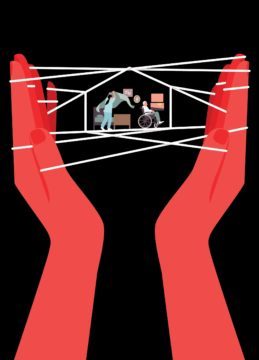Ava Kofman in The New Yorker:
 Over the years, Marsha Farmer had learned what to look for. As she drove the back roads of rural Alabama, she kept an eye out for dilapidated homes and trailers with wheelchair ramps. Some days, she’d ride the one-car ferry across the river to Lower Peach Tree and other secluded hamlets where a few houses lacked running water and bare soil was visible beneath the floorboards. Other times, she’d scan church prayer lists for the names of families with ailing members.
Over the years, Marsha Farmer had learned what to look for. As she drove the back roads of rural Alabama, she kept an eye out for dilapidated homes and trailers with wheelchair ramps. Some days, she’d ride the one-car ferry across the river to Lower Peach Tree and other secluded hamlets where a few houses lacked running water and bare soil was visible beneath the floorboards. Other times, she’d scan church prayer lists for the names of families with ailing members.
Farmer was selling hospice, which, strictly speaking, is for the dying. To qualify, patients must agree to forgo curative care and be certified by doctors as having less than six months to live. But at AseraCare, a national chain where Farmer worked, she solicited recruits regardless of whether they were near death. She canvassed birthday parties at housing projects and went door to door promoting the program to loggers and textile workers. She sent colleagues to cadge rides on the Meals on Wheels van or to chat up veterans at the American Legion bar. “We’d find run-down places where people were more on the poverty line,” she told me. “You’re looking for uneducated people, if you will, because you’re able to provide something to them and meet a need.”
More here.
